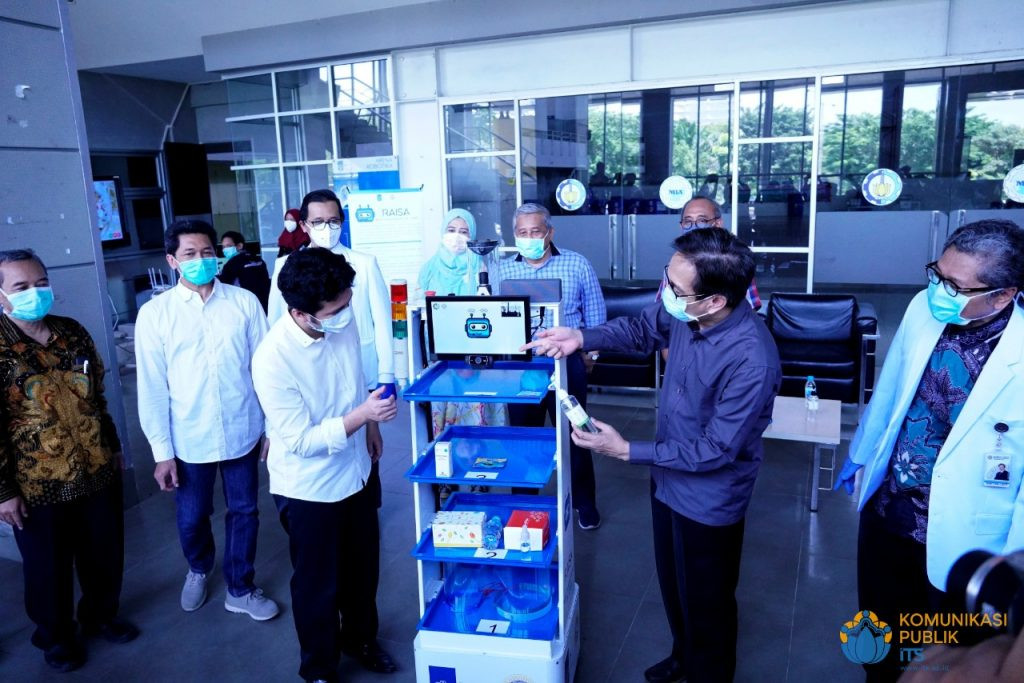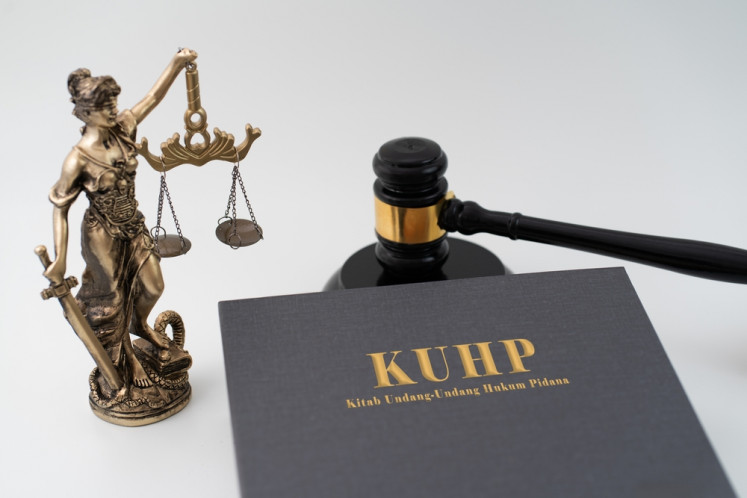Popular Reads
Top Results
Can't find what you're looking for?
View all search resultsPopular Reads
Top Results
Can't find what you're looking for?
View all search resultsFrom test kits to robots, Indonesia develops locally made devices to aid COVID-19 battle
The Research and Technology Ministry's consortium for COVID-19 studies has pushed for the development of domestically produced medical equipment to boost the country's battle against the pandemic.
Change text size
Gift Premium Articles
to Anyone
A
s demand for medical devices and innovation grows in virus-hit Indonesia, the Research and Technology Ministry's consortium for COVID-19 studies has pushed for the development of domestically produced medical equipment, ranging from test kits to robot assistants, to boost the country's battle against the pandemic.
The consortium, comprising research institutes, universities, private companies and state-owned enterprises, has developed rapid diagnostic test kits to detect SARS-CoV-
Yogyakarta-based Gadjah Mada University (UGM), Airlangga University in Surabaya, East Java, and medical equipment manufacturer PT Hepatika are set to produce 10,000 synthetic peptide-based Immunoglobulin G and Immunoglobulin M (IgG and IgM) antibodies rapid detection kits by Friday.
Some 50,000 more test kits will be made by June after the equipment passes the validation test through public use.
The Bogor Institute of Technology in West Java also aims to produce 10,000 gen spike and nucleocapsid rapid detection kits and codevelop 100 prototypes of biosensory-based rapid detection kits with Bandung-based Padjadjaran University by July.
Bambang previously acknowledged that rapid testing kits would be less accurate than PCR tests considered by experts to be the “gold standard" for coronavirus detection. However, he said the Indonesian Institute of Sciences (LIPI) was currently in the process of developing more accurate test kits using the reverse transcription loop-mediated isothermal amplification (RT-LAMP) method.
Read also: Antibody tests key to ending COVID-19 lockdowns
The LIPI-developed rapid testing kits are expected to be ready in July, Bambang said during a work meeting with the House of Representatives on Tuesday.
"The advantage of this rapid test is it is equally as sensitive to PCR tests and can produce results in about one hour, [faster than PCR]," he said adding that the method did not use PCR reagents.
Meanwhile, state-owned pharmaceutical company PT Bio Farma, genome firm Nusantics, Indonesian International Institute for Life Sciences (I3L), Eijkman Institute for Molecular Biology and the Health Ministry's Research and Development Agency (Balitbangkes) are set to produce 50,000 PCR test kits by the end of May, with 10 boxes currently being validated and registered.
The consortium also developed domestic-made Continuous Positive Airway Pressure (CPAP) and emergency ventilators involving 28 developers, including the University of Indonesia (UI), automotive holding Dharma group and the Agency for the Assessment and Application of Technology (BPPT), to meet the Health Ministry’s demand.
The ventilators are expected to enter the mass production on May 12.
Read also: Eijkman Institute finishes sequencing Indonesian coronavirus strain
The BPPT has also introduced mobile Biosafety Level-2 (BSL-2) laboratories made inside a repurposed 6-meter container connected to a truck. Set to be launched on May 20, the laboratory will be able to conduct drive-thru testing and test up to 260 samples a day.
Furthermore, a joint team from Surabaya-based November 10 Institute of Technology (ITS) and Airlangga University Hospital (RSUA) developed a robotic assistant for medical staff called RAISA, which is expected to also reduce physical interaction between healthcare workers and patients.
RAISA, which stands for Robot medical Assistant ITS-Airlangga, could be utilized to remotely deliver food, clothes and medicine for patients in isolation, Bambang said.
The consortium is currently conducting studies to look for raw materials that could be domestically sourced to produce personal protective equipment as well as to search for local herbs that could function as immune-boosting supplements.
Additionally, the consortium will participate in global research efforts for finding a COVID-19 cure and vaccine, as well as develop plasma, serum and stem cell therapy.
As of Tuesday, Indonesia has recorded 12,071 positive cases of COVID-19 with 872 fatalities and 2,197 recoveries.










